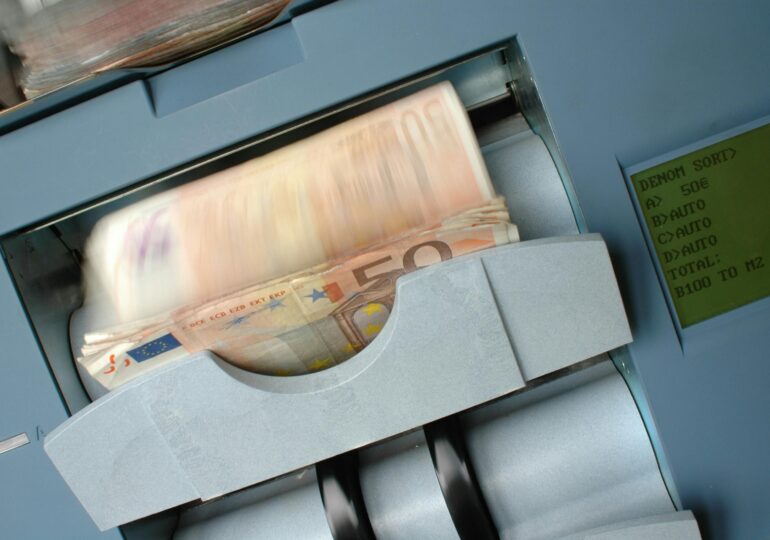The Ministry of Finance borrowed 1.6 billion euros on Tuesday from the domestic market through a short-term bond auction (19 months) and another treasury certificate auction (12 months), also short-term debt securities, according to data published on the website of the National Bank of Romania (BNR).
Both state securities auctions are denominated in euros, and these are the first euro bonds issued on the domestic market since November 2024, after the first round of annulled presidential elections. Just like back then, the euro bond auctions were conducted by the Finance Ministry after the National Bank of Romania (BNR) injected euros into banks through its currency sales from reserves, sales made to protect the leu.
In the week following the elections, BNR spent approximately 6 billion euros from its foreign exchange reserves to support the leu, according to an estimate by Erste Group Bank analysts.
Romania's financing situation has eased, but interest rates have reached astronomical levels for an EU state
In the context of the government-electoral crisis, BNR intervened multiple times in the foreign exchange market to defend the leu and control depreciation. This reduced the amount of leu in the money market, as BNR sold currency in the market (to banks) and bought lei.
This led to an increase in ROBOR interest rates and rates for short-term financing (T/N, for 1-day financing), and the rise in interest rates reduced the possibility of further speculation on the leu. The increase in interest rates was reflected in the calming of pressure on the national currency's depreciation on Friday.
Now, similar to November 2024, as BNR sold euros in the market and banks had a surplus of euros, the Ministry of Finance issued euro bonds and borrowed 1.595 billion lei:
- on a tranche of 751 million euros, through 19-month bonds (maturity December 14, 2026) - banks, on their own behalf and that of clients, subscribed nearly 4 times the offer, with total subscriptions of 785.5 million euros, from an initial prospect of 200 million euros,
- and on another tranche of 844 million euros, through 12-month treasury certificates (maturity May 2026) - where investors subscribed 881.6 million euros, nearly triple the prospect of 300 million euros.
The average interest rates were 3.52% for 12-month government securities and 3.82% for 19-month bonds, well below those on eurobonds issued on the external market, where interest rates exceeded 6%.
Investors await the end of elections
The government-electoral crisis significantly increased Romania's risk premium, or the cost demanded by investors to finance the Romanian state. The situation deteriorated starting Monday, in the context of the results of the first round of presidential elections and the resignation of PSD Prime Minister Marcel Ciolacu.
As evidence, in December 2024, on a maturity of 14 months, Finance borrowed at an average interest rate of 6.68%. Now, on the same maturity, the average interest rate accepted by Finance on Monday was 8.45%.
Additionally, interest rates in the secondary market have surged in the last week, from 7.4% before the elections to 8.6% on Thursday, in the case of the 10-year bond interest rate. Similarly, on Thursday, the government once again accepted a record interest rate of 8.21% on a loan of 500 million lei. The financing was attracted again for the short term, through treasury certificates (8-month maturity).
Read the full analysis Finance has what to borrow from banks: the billions of euros with which BNR intervened. Investors await the election results on Curs de Guvernare

